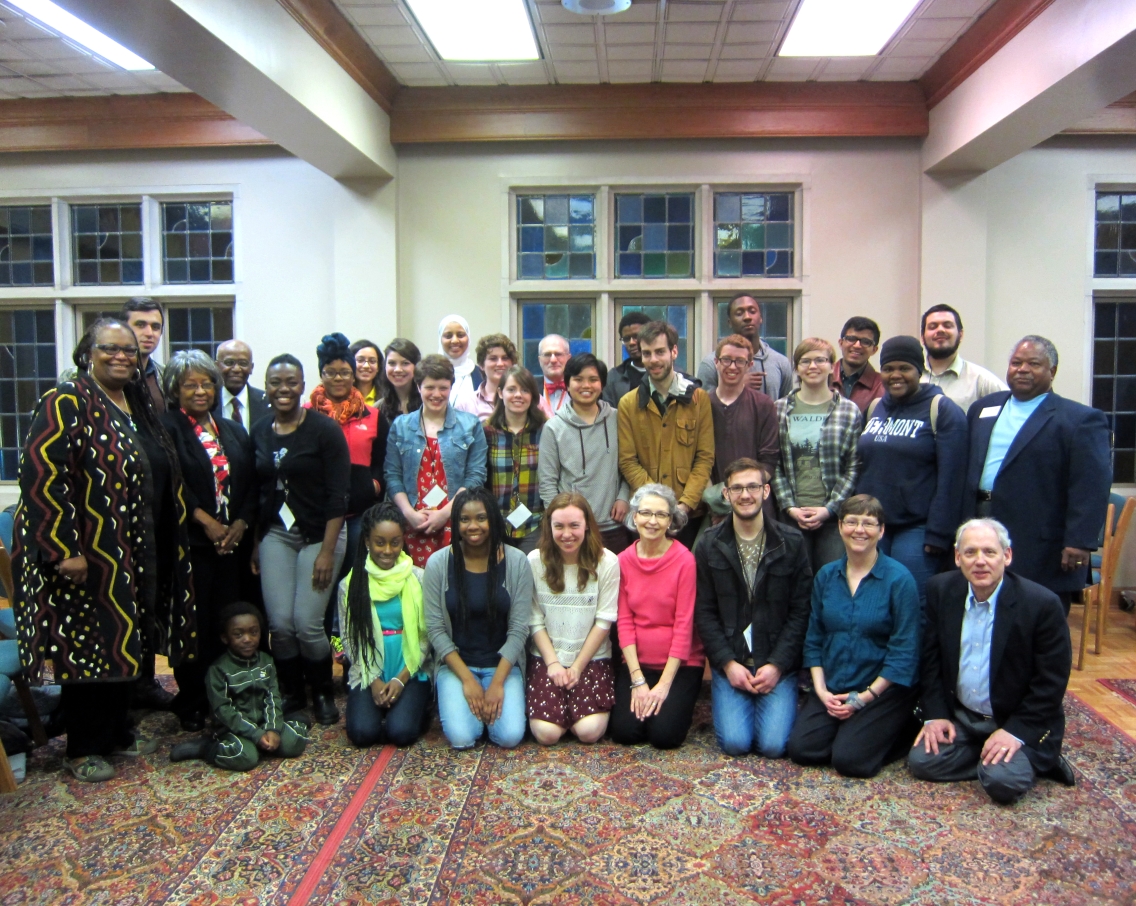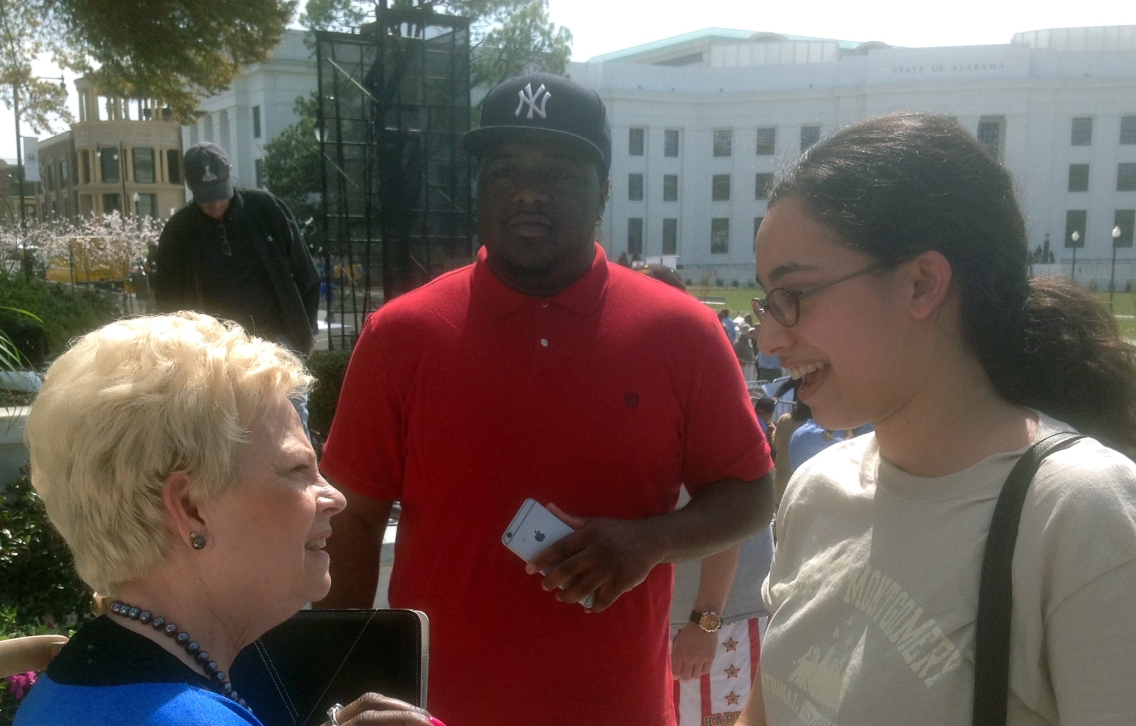A Spring Break Trip Through Civil Rights History
MIDDLEBURY, Vt. — A group of Middlebury students, faculty, and staff are spending spring break on a service trip to Montgomery, Alabama, this week, marking the 50th anniversary of the famous civil rights march from Selma to Montgomery. After a nearly 24-hour bus ride from Middlebury, the students arrived in Montgomery, where they were welcomed by community religious leaders at the First United Methodist Church of Montgomery. Some of those leaders shared their firsthand memories of working with Dr. Martin Luther King, Jr.
Over the course of a very busy week, students are volunteering with Habitat for Humanity and touring some of the important sites of the Civil Rights Movement.
We asked the travelers to share some of their experiences in writing and photos. Following is a reflection by student Meridith Carroll ’15. The trip was organzied by the Charles P. Scott Center for Spiritual and Religious Life. More photos and descriptions are available on the trip blog.
By Meridith Carroll ’15

Today, we began our day early, driving to the suburbs of Montgomery to start our work with Habitat for Humanity. Students divided into groups to help clean, prep, paint, and perform minor construction work on a house that is being refurbished for a local family. At the work site, our group was joined by Deb Wakefield, a Middlebury Alumna who lives in Birmingham.
After a few hours of work, the group headed back on the bus and traveled downtown to tour the Dexter Avenue King Memorial Baptist Church, the church where Dr. Martin Luther King Jr. ministered for six years. Dexter was the only church where king ministered in Alabama, preaching at the church for a total of six years. The Church featured an extensive mural detailing Kings journey through the civil rights movement as well as portraits of other prominent African-American leaders of the time.
The tour was led by the wonderfully energetic and engaging Wanda Battle. Battle began the tour by launching into song, encouraging the entire group to sing along with her. As she shared facts about King and the leadership of the church, from Vernon Johns to its founding ministers, she also provoked students with the king quote, “If a man has not discovered something that he will die for, he isn’t fit to live,” asking students what they believed was worth dying for, which prompted answers spanning from family members to personal dignity.

Middlebury student Maryam Mahoob ’18 spoke with Peggy Wallace Kennedy, daughter of the late governor George Wallace, following a gathering celebrating the 50th anniversary of the Selma-Montgomery March in 1965.
The tour concluded with a visit to the Church’s upper sanctuary where Battle sang a moving few lines of “We Shall Overcome” as sunlight broke through the clouds and streamed through the stained glass windows.
After visiting the Dexter Avenue Memorial Baptist Church, the group walked to the Rosa Parks museum, visiting multiple exhibits that detailed the actions of Parks and the many other people involved in the Montgomery bus boycott and the ensuing Supreme Court decision to desegregate buses. While The museum catered to a broad audience, containing a “time traveling” bus exhibit for children that also provided a thorough history of racism in the south and Jim Crow laws while also featuring a large re-enacted exhibit with life-size figurines and dioramas alongside important primary documents from the boycott and court case.
Thus far, our trip to Montgomery has been filled with a wealth of factual information provided by many wonderful museums, tours, interpretive centers and historical sites. Yet, perhaps what has stood out the most to me personally has been the willingness of the people working at or attending these sites to engage in a thoughtful and provocative dialogue with our group.
Yesterday, in Selma, we encountered Joanne Bland, a woman who marched across the Edmund Pettus Bridge on Bloody Sunday as an 11 year old girl, who invited us to cross the bridge with her. Then there was Tina, a guide at the Selma interpretive Center, who met with our group outside of the Center to ask about our opinions on mass media’s effect on civil rights and to share her thoughts on religion’s role in contemporary racial movements. And then there was Wanda, whose passion for her work in Dr. King’s Church was palpable and who wished us the most thoughtful encouragements as we continue in our education of civil rights to see how we can continue to make change in the world today.
As we exited the chapel, Wanda hugged each of us and I was struck by the kindness of these virtual strangers who are all so willing to share their knowledge with us students from Middlebury. While we can learn the facts and see facsimiles of documents in textbooks or documentaries, it is the personal interactions tied into our experience of learning the history that is making this trip a truly unique and powerful experience.

